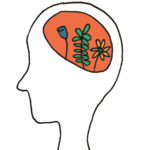Nonprofit Spotlight: BEAM
 Giving
Giving
In February, PennyLoafer donors collectively gave to BEAM: Black Emotional and Mental Health Collective!
The Rundown
Years founded: 2016
Leadership: Founder and Executive Director, Yolo Akili Robinson, has worked as a community organizer and advocate in Public Health for 15+ years. He was the 2018 recipient of the prestigious Robert Wood Johnson Foundation "Health Equity Award", which honors leaders who are changing systems.
Issue they address: the barriers that many Black people experience getting access to and staying connected to emotional and mental health services.
What they do: increase access to mental health resources and tools + build the capacity of Black communities to respond to mental health challenges.
How they do it:
Provide online peer support groups, wellness tools and resources (like the Black virtual wellness directory to connect with therapists and other wellness practitioners across the country).
Lead educational, skills-based trainings on identifying and responding to mental health challenges in Black communities and healing justice- informed peer support practices.
Oversee several grant-making initiatives, including a fund that supports Black-led mental health and wellness organizations across the country; a fund that supports Black parents caring for children with mental health challenges; and a fund that supports wellness professionals in the rural south.
Why they were chosen
BEAM takes a holistic approach to meet the mental health needs in communities of color. They foster community-based systems of care by building the capacity of everyday community members (teachers, barbers and parents, etc.) to identify and respond to mental health challenges and improve community wellness.
- Their solutions are rooted in the voices and needs of Black communities, and their work uses a healing justice framework, which “identifies how we can intervene and holistically respond to generational trauma and violence.”
- In 2020, they trained 2,500 people across the country. Their virtual tools and directory were accessed by over 250K people and had 40K shares on social media.
- They’ve ramped up program evaluation, and continue to expand their reach, even beyond what their own programs can accomplish, by funding other organizations working across the country to improve Black mental health and wellness.
- For more, read this article on their work.

 Learning
Learning
Did you know February’s Black History Month has a theme every year? Themes are chosen by the Association for the Study of African American Life and History (ASALH), the organization founded by Carter G. Woodson, a.k.a. the “father of Black history”. This year, the theme was Black Health and Wellness.
While Black people are more likely than their white counterparts to report persistent emotional distress, only 1 in 3 Black adults who need mental health care actually receive it.
This results for a number of reasons, including the stigma surrounding mental health in Black communities, discrimination and prejudices in the health care system, socio-economic barriers (ex: access to health insurance), and lack of access to culturally-competent care (in 2018, only 4% of American psychologists were Black).
Organizations like BEAM are helping to remove these barriers and creating community-based, culturally competent solutions to mental health and wellness.
If you enjoyed this and want to get involved, you can support the Mental Health cause on PennyLoafer, starting with as little as $5/month. Each month, you’ll support and learn about a different nonprofit working to make the world a healthier place.
 Giving
Giving Learning
Learning